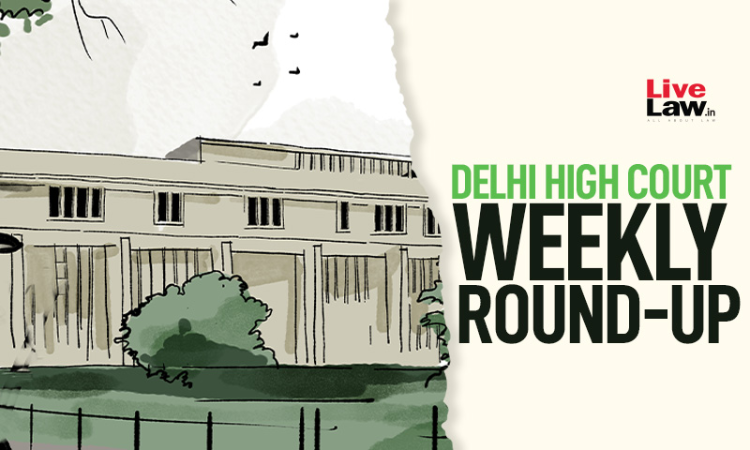Delhi High Court Weekly Round-Up: October 10 To October 16, 2022
Nupur Thapliyal
16 Oct 2022 12:36 PM IST

Next Story
16 Oct 2022 12:36 PM IST
Citations 2022 [LiveLaw (Del) 946 TO 2022 LiveLaw (Del) 979]NOMINAL INDEXCIT Versus Travelport L.P. USA 2022 LiveLaw (Del) 946Dharampal Satyapal Limited & Anr. v. Mr. Youssef Anis Mehio & Ors. 2022 LiveLaw (Del) 947Esha Kedia versus Milan R. Parekh & Ors. 2022 LiveLaw (Del) 948Kishan Lal Kuria Mal International versus Union of India 2022 LiveLaw (Del) 949M/s Victory Electric...
